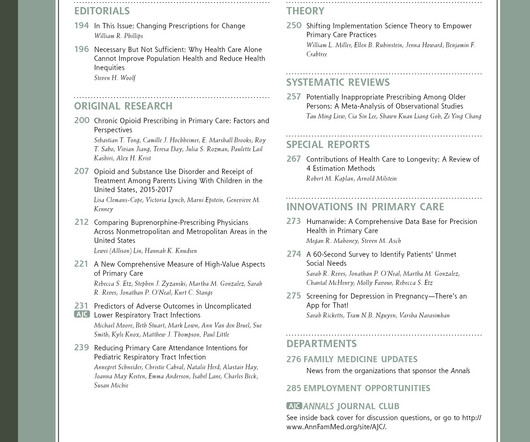Translating complex clinical environments to virtual care: Standards of Care in Virtual Medicine in Canada [Health care services, delivery, and financing]
Annals of Family Medicine
NOVEMBER 20, 2024
Context Rapid adoption of virtual care in early 2020, meant there was little time to develop or plan integrated virtual health care services, resulting in an urgency to establish governance for quality-based virtual care in Canada. Only the most recent published standards were used in analysis.













Let's personalize your content